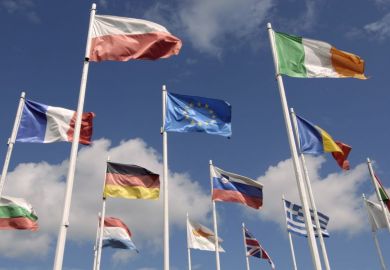The president of the European Research Council has resigned just four months into the job after a dispute over whether the funder should launch an emergency programme to combat the coronavirus.
Mauro Ferrari, a nanomedicine pioneer who has spent most of his career in the US, apparently clashed with the ERC’s governing body over whether to abandon the organisation’s “bottom-up”, researcher-driven approach during the pandemic and launch a more directed effort against the virus.
“I argued that this was not the time for scientific governance to worry excessively about the subtleties of the distinctions between bottom-up versus top-down research, or whether all scientific sectors would benefit similarly from a broad initiative on Covid-19,” he said in a statement to the Financial Times. “So, I was clearly disappointed, and deeply disturbed, by the unanimous rejection.”
Critics argue that he has misunderstood the ERC’s long-term, blue-skies scientific mission.
“Mr Ferrari’s recent proposal to deviate from the ERC’s researcher-driven approach was seen more as a window-dressing public relations stand on the coronavirus crisis, and it was a contradiction to the legal basis of the ERC, which can and does in many ways contribute to the fight against COVID-19,” said Christian Ehler, an MEP closely involved in European Union research policy, in a statement.
“Starting with high expectations but never really acquainting with the independent nature of the ERC, we are sorry that things have turned out this way for a brilliant researcher and entrepreneur like Mr Ferrari. However, this should not serve as argument to accuse the ERC or the EU of not doing enough,” he said.
On 8 April, the ERC's scientific council hit back, saying that it had already requested Professor Ferrari resign on 27 March. It accused him of displaying a "complete lack of appreciation for the raison-d’être of the ERC to support excellent frontier science, designed and implemented by the best researchers in Europe", as well as spending too much time in the United States and on outside work.
"The ERC does not make calls for specific topics, since a guiding principle of ERC is that our researchers are free to pursue the goals they define and to decide on what they wish to work. In our view, this is a crucial way to generate the best science," it affirmed.
Register to continue
Why register?
- Registration is free and only takes a moment
- Once registered, you can read 3 articles a month
- Sign up for our newsletter
Subscribe
Or subscribe for unlimited access to:
- Unlimited access to news, views, insights & reviews
- Digital editions
- Digital access to THE’s university and college rankings analysis
Already registered or a current subscriber?






